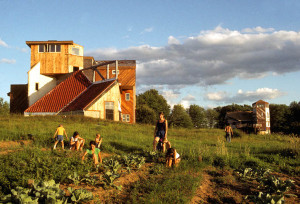As I have just completed my yoga teacher training, I thought it appropriate to write about how I got here, what yoga has done for me and what’s made me want to share those benefits with others.
I came across yoga after a series of knee injuries put an end to my team sport playing days, I was looking for a form of exercise which would help me unwind and keep me toned and anything to avoid having to join the gym really! I’d heard it could help reduce stress too and I felt like I needed to relax so combining the two things sounded like it may also save me time!
I’d seen yoga classes on my travels and a room full of slim toned women who lay down and ‘relax’ a lot seemed liked something I could cope with. Yoga is for everyone; I’ve been in classes full of men, women, old and young, all different sizes and levels of fitness. It is still seen as a woman’s thing but men are also seeing the benefits, many sporting teams now incorporate a yoga practice as part of their stretch routine to warm up, aid recovery and assist with injury prevention.
Many people join yoga for the physical benefits and I guess if this gets them to the mat it’s a good thing but there’s so much more to it as I discovered. As I progressed the postures began to get easier, I was feeling stronger and was beginning to master my focus and attention in class deepening my practice so it became about the body and mind and the connection with the breath.
However there was still that part of me that so badly wanted to be better, to do a headstand and put my legs behind my head and when I did finally pull of a posture I’d been practising I was desperate for someone to notice and offer some praise, I was still learning how yoga really worked. A new challenge for me became the discipline to hold back and listen to my body and not to over stretch myself.
It’s not about doing all the cool looking poses you see on the magazines or trying to run before you can walk. It’s not about pushing yourself to go further every time or trying to replicate the magazine covers and it’s not about feeling like you’ve failed when you can’t or getting mad that you’re not improving fast enough or as good as the person on the next mat.
It’s about doing what you can, with the body you have at the class you’re in, being grateful for that and enjoying the moment.
The original practice of yoga comes from ancient eastern traditions where it is more a spiritual way of life than a workout. The purpose of the physical asans (postures) was to aid the body when sitting in meditation for prolonged periods and the breath is such an integral part of the practice, if you’re not breathing right, you’re not practising yoga.
Of course we’ve put our western twist on it and off the back of this comes gyms offering yoga to pumping music, million dollar fashion ranges and celebrity crazes but we should always remember the true purpose of yoga and respect where it has come from.
The Yoga Sutras explains the philosophy of Ashtanga yoga which includes; compassionate living (for yourself and others), freedom from possessiveness and envy, moderation in all things, generosity, truthfulness, purity of body and mind, motivation, inner contentment, study of the self, breathing, concentration and meditation. The most beneficial parts of a yoga class can be in the breath, that’s the thing we are often holding whilst we strain to try and get our foot behind our head! Matching the movement to the breath and taking the time to calm ourselves and turn inward is really where yoga comes into its own, yes there are the physical benefits but this is only half the picture.
In a world where depression and obesity seem to be the fastest growing epidemics yoga really can do wonders for us when we look at the practice holistically.
I used to find the resting postures an inconvenient interruption to toning my body in the early days, I thought “what possible benefit could there be of lying on the floor and doing nothing, I can do that when I go home to bed”. But as I spent more time in class I began to understand why this is an essential part of the practice and how it taught me to be present in the moment and more aware.
Savasana (corpse pose) is one of the most important asana, yet also one of the hardest to achieve, we struggle to allow ourselves to let go and do nothing and relax but it is necessary for the mind and for a holistic practice to get the full benefits from yoga.
So remember next time you’re on the mat what yoga is all about; focusing on your own practice rather than worrying about what others are doing or that the person next to you can get their head to the floor. Not pushing so hard (it’s not a competition), closing your eyes and going inwards to feel the practice, listen to your body and be kind to it.
There is also a strong link between physical and emotional in yoga, our strength and our balance when cultivated on the mat also help us become stronger and more balanced in our daily lives as we reap the mental and emotional benefits of our practice.
We should aim to take the practice into our daily lives, yoga does not stop when you leave the mat. Learning to be grateful for what we have rather than always wanting more, living simply, letting go of our attachment to things and ideals and learning to turn inwards to still our busy minds and be at peace.
Yoga is about the body, mind and the breath, taking the time to go within, spending time with yourself, discovering yourself and making peace with what you find.
The more self aware you become, the better your practice will be.
I hated missing a class in the early days and would go 100% even if I knew I was injured or sore, these days I’ve learned to back off when necessary and listen to how my body feels and what it needs, although I’m never away from the mat for long. I’ve found yoga can be the antidote to many things.
During the times my life has become crazy and I’ve stopped doing yoga I have also discovered the consequences of not practising, you lose your tone and flexibility but also the mental side, I am restless and more negative in the mind when not practising yoga.
The times when you think you’re too busy to do yoga are the times when you need it the most. I think everyone who knows yoga would agree that it can aid strength, flexibility and balance but if you’d have told me at the start that I’d also become more self aware, confident, focused, calm, happier and more compassionate I would have laughed and then probably run a mile in the opposite direction, at the time I don’t think that’s what I wanted and was happy just to get a bit more toned ready for summer at the beach.
Many people are still uncomfortable with the spiritual side of yoga and some aren’t interested, wanting the physical benefits only but the practice of yoga is all about uniting the body and mind and the balancing of our physical, mental and emotional self.
Physically yoga has taught me how to love my body and this is easy to do when you start to see your wobbly bits toning up! But mentally it brought balance and clarity too. So what started off as a form of exercise I thought might be easier than going to the gym has now become my life. I have swapped my corporate career and suits for one of bare feet and yoga pants in a bid to share these benefits with other people.
People find yoga for different reasons and you’ll get out of it what you put in, it takes time and will happen when you’re ready but even getting the basics from yoga is a step in the right direction and it is capable of helping you achieve amazing things.
Namaste!









